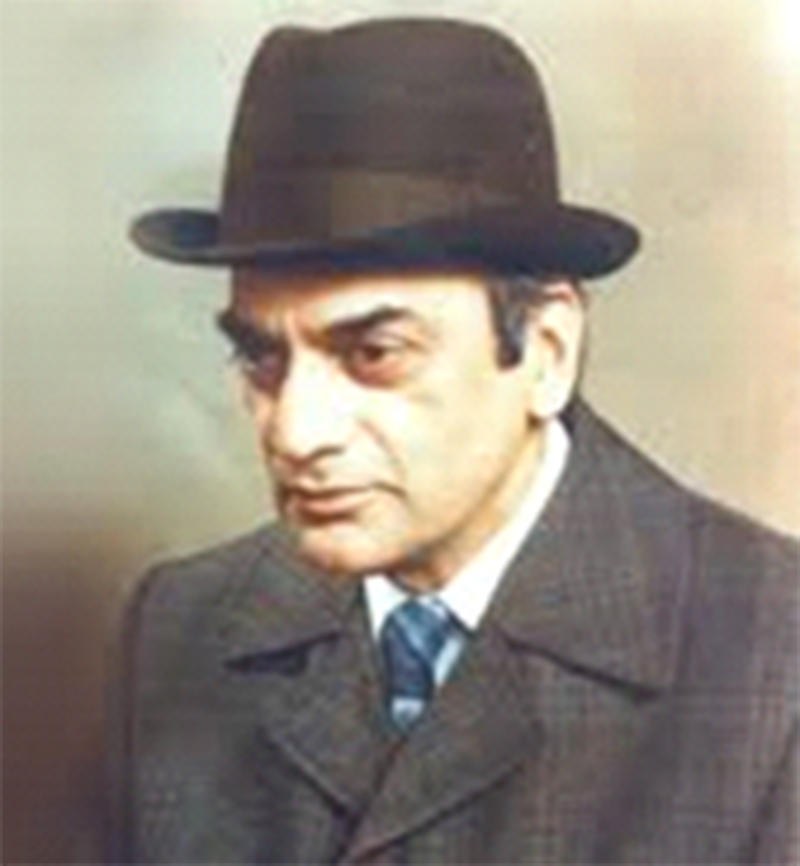Dear Editor,
Balram Singh Rai would have been 101 next month. Unfortunately, he departed the physical world a few days ago in Oxford, England. Word of his passing was brought to my attention from a friend. Rai served the PPP government as the Minister of Community Development and Education and as Guyana’s first Minister of Home Affairs in the pre-independence period. As the official biographer of Mr. Rai, kindly allow me the opportunity to rekindle and share with readers what I had previously written as a tribute to him in SN (Feb 6, 2021) a year ago on the remarkable accomplishment of becoming a centenarian:
“Balram Singh Rai will be 100 years old on February 8. Rai was an iconic political figure, dating back to the pre-independence years. Together with Ashton Chase and Eusi Kwayana, he is one of few political leaders still alive from the 1947 era when he supported the brash young radical Cheddi Jagan in a successful bid for a seat in the colonial legislature. Rai was an attorney and a devout member of the Arya Samaj Hindu faith. Clem Seecharan recalled how Rai was viewed in his Berbice village of Palmyra, 12 miles away from Jagan’s birthplace in Plantation Port Mourant: he was an icon…brilliant, fearless and confident…a true Kshatriya…After Jagan, Rai was certainly the most popular Indian leader in the colony.
“Rai rose to political prominence in 1957 after winning a seat to the colonial legislature as a PPP candidate by defeating Sydney King (Eusi Kwayana) in a close election for the Central Demerara constituency. He served as Minister of Education (1959-61) and later, as Minister of Home Affairs (1961-62). As a PPP minister, he respected cultural diversity, advocated for the liberalization of local government and promoted ‘balance’ in the police force through targeted Indian recruitment. He played a major role at the historical 1960 Constitutional Conference in London where the issue of self-government was discussed (other delegates included Cheddi Jagan, L.F.S. Burnham, W.O.R. Kendall, Brindley Benn, Jai Narine Singh, Robin Davis and Rahman B. Gajraj). During his tenure, dual-control of Christian-ran schools was abolished. On February 16, 1962 (“Black Friday”), when British Guiana was in the throes of anti-budget demonstrations in Georgetown, led by Forbes Burnham and Peter D’ Aguiar, Minister Rai oversaw the crisis while every other PPP minister, including the Jagans, went into hiding. Mr. Rai countermanded an order by the police commissioner to shoot protestors if warranted. Had this happened, British Guiana would have descended further into a state of ethnic strife.
“Mr. Rai’s term as Guyana’s first Home Affairs Minister was short-lived after Dr. Jagan asked Governor Ralph Grey to revoke his ministerial portfolio in June 1962. This was subsequent to Mr. Rai, who was Deputy (Vice) Chairman of the PPP, being expelled by Dr. and Mrs Jagan, because of his refusal to retract his public statement that the Jagans manipulated the PPP elections for Party Chairman. Rai challenged a popular African Guyanese and former Minister of Natural Resources, Brindley Benn (father of current minister of Home Affairs, Robeson Benn) for the post of Chairman at the PPP’s Congress in 1962. Rai’s complaints about the electoral irregularities to then Attorney General Fenton Ramsahoye evoked the cryptic response: “Comrade, why worry. The party works in devious ways.” Together with another PPP stalwart, Jai Narine Singh, Rai later formed the Justice Party, but could not secure enough votes to win a seat in the 1964 elections. During the 1964 elections, he warned his supporters that the imposed Proportional Representation system would result in the PPP being excluded from government. Rai remained incorruptible, migrating to the UK in 1970. He rejected Burnham’s entreaties and lucrative offers, even as some of the PPP’s brightest Marxist theoretician, including Ranji Chandisingh, accepted Burnham’s carrots.
“The Pensions (President, Parliamentary and Special Offices) Act, Chapter 27:03, enacted in January 1970, provided for pension to legislators who were sitting members of the National Assembly on or after May 26, 1966. The Act also provided for pensions to legislators who had served in 1953 or after, thus providing for former legislative service to be counted for purposes of computing pensions to qualified legislators. Balram Singh Rai served as a legislator from 1957 to 1964. He remains today the only Guyanese minister who was denied a parliamentary pension. Despite previous correspondences and conversations on this matter with Forbes Burnham, Desmond Hoyte, Sir Shridath Ramphal, Sase Narain, Cheddi Jagan, Roger Luncheon, among others, this issue remains unresolved. It is not that Mr. Rai, now under hospice care in England, seeks to benefit from his pension, but as Ralph Ramkarran noted (SN, June 7, 2015) the government’s magnanimity in recognition of the social injustice perpetrated against one of its own ministers ‘would go a long way in correcting egregious historical omissions’ like that of Mr. Rai’s.”
Kit Nascimento had subsequently indicated in a letter to the press that Rai was not the only parliamentarian denied a pension. The fact remains, however, that despite several correspondences from Rai directly to Cheddi Jagan, this matter was never addressed.
In any case, Mr. Rai had indicated to me, as well as Rampersad Tiwari (who edited Cheddi Jagan’s book), that should anything of substance materialize from this injustice, the entire pension should be gifted to the Dharm Shala, the charity established in 1921 by Pandit Ramsaroop Maharaj.
I salute Mr. Rai by echoing the words of Swami Dayanand Saraswati, founder of the Arya Samaj – ‘Krinvanto Vishwam Aryam’ (Make the World Noble).
Sincerely,
Baytoram Ramharack





